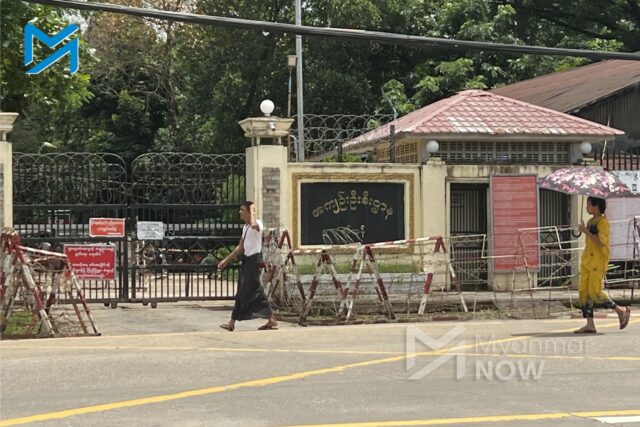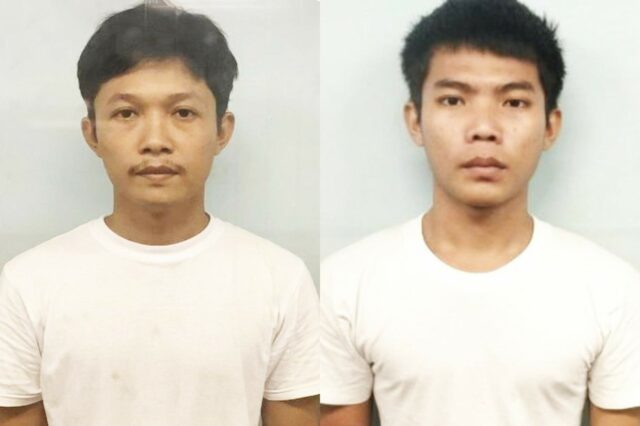The current status of the two prisoners was unclear, but sources close to their families said that there were reports that Htet Paing Soe had been removed from his cell on Tuesday, the day after the regime announced Myanmar’s first executions in more than three decades.

The main entrance of Yangon’s Insein Prison, seen in July (Myanmar Now)
According to one source who did not want to be named, Htet Paing Soe and Wai Yan Tun share a cell in a ward for condemned prisoners with one other prisoner.
“When I heard that he alone was taken out of his cell that night, I started to cry,” the source—a close friend of Htet Paing Soe’s family—said, adding that it was still not known where he had been transferred to.
Unable to meet the prisoners due to the junta’s restrictions, the families of the two men have grown increasingly anxious over speculation that more executions may be imminent.
For some political observers, the junta’s resumption of executions for the first time since 1988 has set a very dangerous precedent that will make it harder than ever to emerge from the current crisis.
“There is no longer any reason for the military council and the resistance to try to compromise. There is now a clear division between friend and enemy. In the past, you might be criticised if you spoke of reconciliation, but now you’re more likely to end up dead,” said Sai Nyunt Lwin, the chair of the Shan Nationalities League for Democracy.
As if to underline this grim pronouncement, there were reports on Thursday of yet another killing in Yangon targeting an administrator appointed by the regime.
Than Win, a ward administrator in Botahtaung Township, was gunned down at the corner of Merchant Road and 42nd Street, in downtown Yangon, becoming the latest casualty of a war that shows no signs of ending.
Original Post: Myanmar Now



